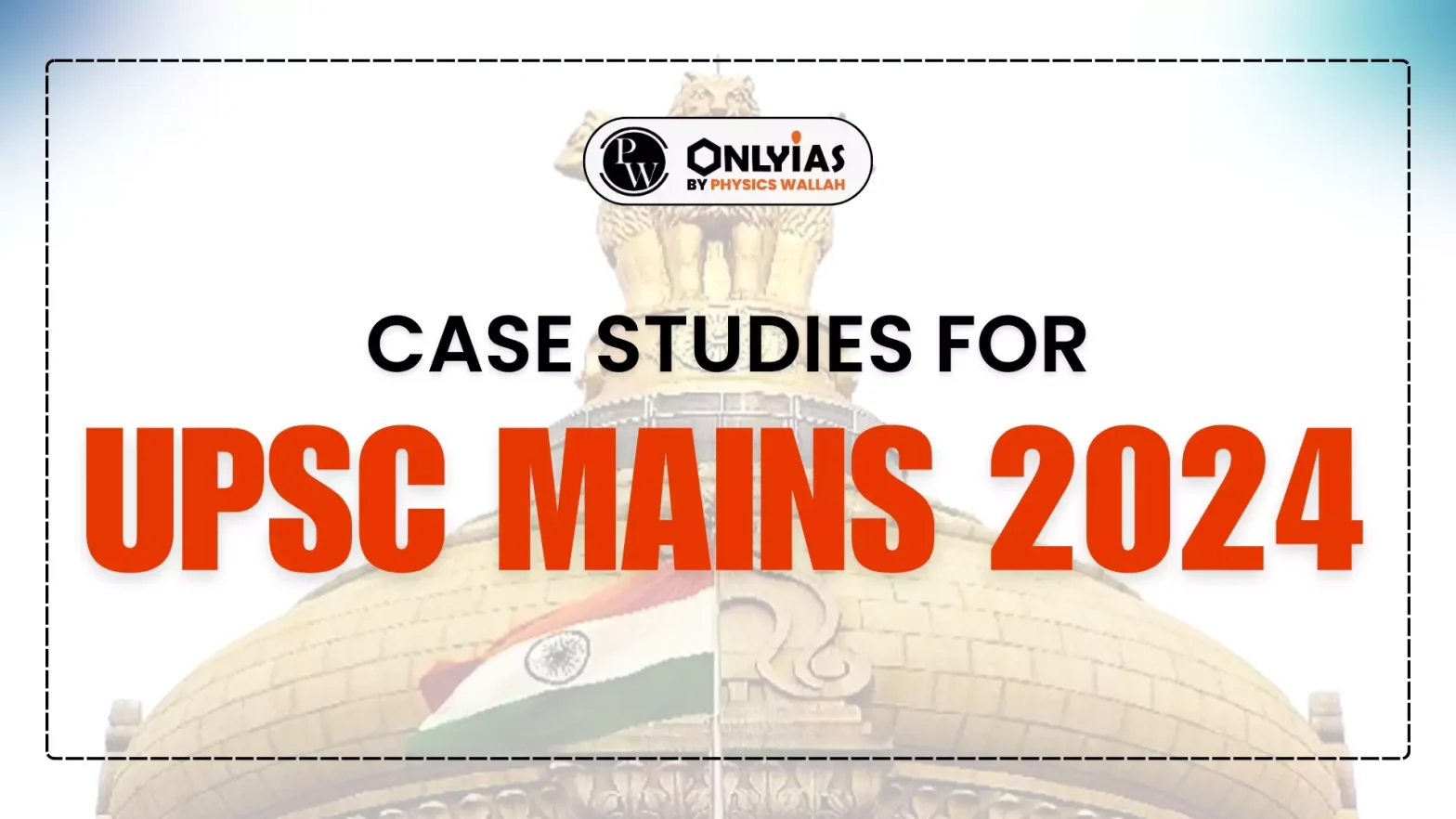Know about the Case Studies for UPSC Mains 2024 with effective strategies and preparation tips.

Case Studies for UPSC Mains 2024: Practising the Case Studies for UPSC Mains 2024 can be proven as an effective strategy for the aspiring candidates, as case studies are a significant part of the UPSC Civil Services Exam. UPSC’s mains case study questions generally test problem-solving skills, ethical judgment, and ability to apply theoretical knowledge to real-world situations.
We have created this blog, to present the importance of Case Studies for UPSC Mains 2024, and how to approach case studies effectively. Additionally, we will focus on the key strategies and tips to enhance the preparation level of the candidates.
Case Studies for UPSC Mains 2024 is an integral part of the UPSC Mains examination, especially in the General Studies Paper IV (Ethics, Integrity, and Aptitude). Case studies-oriented questions evaluate the ability of the candidate to handle and present an argument on complex situations that consist of ethical dilemmas, administrative challenges, and societal issues. UPSC mains case study questions also test the application of ethical theories and concepts in real-life scenarios, which makes it vital to understand a candidate.
Such case studies present a situation where the candidate has to analyze various perspectives, consider different courses of action, and guide the most ethical and effective solution. A candidate must have abilities like; decision-making, critical thinking and reasoning communication to qualify for this section of the UPSC exam.
Understanding the importance of case studies for UPSC Mains 2024 is essential for the candidates. Here are some reasons why these case studies are vital:
A real-world UPSC Mains case study question consists of a specific structure that examines various skills of the candidate.
|
Structure of UPSC Mains Case Study Question |
|
| Background: As a district collector in a drought-prone region, you face challenges related to water scarcity, farmer distress, and resource allocation.
Stakeholders: Farmers, local government, NGOs, and the general public. Dilemma: Balancing resource allocation between agricultural needs and drinking water supply. Questions:
|
Solving case studies for UPSC mains needs a systematic approach to solve and tackle these complex problems. Here are some strategies to enhance your case study-solving skills:
While answering and tackling UPSC mains case study questions, candidates often make common mistakes, that can reduce their scores. Here are some mistakes to avoid:
UPSC mains case study preparation needs dedicated efforts and a strategic approach, a candidate should adopt such strategies and tips to enhance their preparation level:
In conclusion, Case Studies for UPSC Mains 2024 is the important factor of UPSC Examination, which test candidate’s ethical reasoning, decision-making skills, and administrative understanding. By analyzing structure of UPSC mains case study questions, using effective strategies, and regular practice, candidate enhance their preparation level and qulify for the UPSC Civil Services Examination.
Remember, mastering UPSC mains case study preparation requires consistent effort, ethical awareness, and a holistic understanding of societal issues. Solving case studies for UPSC mains, requires a effective skill set.
If you want to seek assistance from experts and the best resources, consider enrolling yourself in PW online UPSC batches.
| UPSC Mains 2024 Related Articles | |
| UPSC CSE Mains 2024 | UPSC Mains Exam Pattern 2024 |
| UPSC Mains Syllabus 2024 | UPSC Mains Previous Year Papers |
| UPSC Mains Admit Card 2024 | UPSC Mains Previous Year Cutoff |
Case Studies for UPSC Mains 2024 are essential as they assess a candidate's ethical judgment, decision-making skills, and ability to apply theoretical knowledge to real-world situations.
Approach UPSC mains case study questions by thoroughly understanding the scenario, analyzing stakeholders, evaluating options, and recommending ethically sound solutions.
Common mistakes include ignoring stakeholders, lacking ethical justification, superficial analysis, overemphasizing theory, and neglecting implementation challenges in UPSC mains case study questions.
Yes, examples of UPSC mains case study questions include scenarios on environmental ethics, administrative ethics, and social justice, where candidates must analyze and propose solutions.
For UPSC mains case study practice, use books like "Lexicon for Ethics" by Niraj Kumar, online platforms like PW OnlyIAS, previous years' papers, and coaching materials from reputable UPSC institutes.
Improve UPSC mains case study preparation by studying ethical theories, practicing regularly, analyzing real-world scenarios, engaging in peer discussions, and seeking feedback.
<div class="new-fform">
</div>